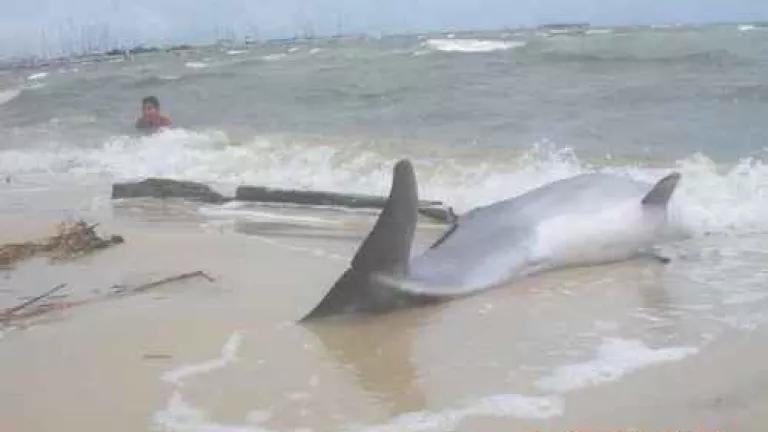
NRDC initiated legal action today against the Bureau of Ocean Energy Management, Regulation and Enforcement (BOEMRE) for violating a sea of environmental laws when approving a deep-water Exploration Plan for the Gulf of Mexico from Shell Oil.
I sympathize with BOEMRE’s plight: it faces constant pressure from the oil and gas industry to speedily allow more oil and gas development, pressure from the oil and gas industry’s congressional supporters who can threaten oversight hurdles and a budgetary nightmare, and pressure from staff to be friendly to an industry that they may one day officially work for. In the face of such pressure, what’s an agency to do when complying with key environmental laws that may slow down the approval of the oil and gas industry’s plans to drill more deep-water exploratory wells? Apparently, in this case, the agency ignores its obligations under the law and hopes no one notices.
BOEMRE’s violations of the Endangered Species Act and the Marine Mammal Protection Act are particularly problematic as the requirements under these statutes could not be clearer.
Under the Endangered Species Act, BOEMRE must consult with the National Marine Fisheries Service (NMFS) and Fish and Wildlife Service (the experts on our nation’s listed endangered and threatened species) to ensure that its action – the approval of Shell’s plan – is not likely to jeopardize any listed species or result in the destruction or adverse modification of critical habitat and it cannot approve a plan until this consultation is completed. Here, BOEMRE is apparently relying on an outdated and flawed consultation process that took place before the Deepwater Horizon disaster in the Gulf of Mexico.
While BOEMRE and NMFS agree that this previous consultation needs a do over, given the Deepwater Horizon reality check on oil-spill and impact assumptions, they have nonetheless approved a plan from Shell Oil to drill wells in the same deep-water canyon (Mississippi Canyon) that BP was drilling in when it had its disaster.
Worse, the wells Shell wants to explore are much deeper than the failed Macondo site. Shell estimates that a worst-case blow out would result in nearly ten times the number of barrels (45 million barrels) of oil that spilled from BP’s disaster. If you ever needed evidence that your previous assumptions about oil spills and their impacts need to be reanalyzed (as the Endangered Species Act requires), this is it. Allowing this action to move forward without this analysis violates the law.
Under the Marine Mammal Protection Act, the violations are even more blatant. Under this act, a party (including BOEMRE) is not allowed to take action that may harm marine mammals until it gets approval from NMFS. Here, BOEMRE has never received such authorization from NMFS, despite knowing the law requires it, as evidenced by the receipt of such authorization for other oil and gas activities. The fact is that BOEMRE does not have authorization to harm marine mammals and, until it does, every taking or harassing of a marine mammal that occurs from the approval of this Exploration Plan is a violation of law.
But there’s another, less savory explanation for BOEMRE’s decision to violate the law. It’s not that it doesn’t believe it’s violating the law, but that it lacks the courage to comply with the law. Imagine the firestorm it would face if it said it was not going to approve any plans for future deep-water oil and gas development until it completed the proper environmental analysis. But now, if a court orders it to comply with ESA and the MMPA, BOEMRE has the court order to fall back on when the oil and gas industry comes calling.
If this is the case, I know that NRDC doesn’t mind playing this watchdog role – we have been doing it for 40 years – as long as it results in the eventual compliance with our nation’s environmental laws that exist to protect endangered species. But wouldn’t it be nicer if the agency with one of the dirtiest records (both literally and figuratively) instead stood up to industry pressure and complied with the letter and spirit of our environmental laws?
